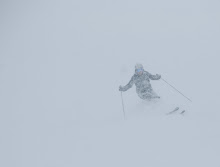In the past two weeks, I have read several books. At first they seemed disparate. I read "Last Child in the Woods" by Richard Louv which reinforced my belief that nature is a source of healing, spirituality and beauty, and that without contact with nature, our souls are thinner. I read "Comfortable with Uncertainty" by Pema Chodron. I resonated with many of the concepts but wondered how to reconcile the notion of "groundlessness" with the feeling that being "grounded", being "centered" contribute to me being a more true me. I also took some to time to begin to understand Tonglen. The idea of breathing in whatever seems bad initially felt counter-intuitive, though the idea of breathing out and passing on good made sense from the outset. I read "Shadow Catcher" which contains some of the most poetic prose I have ever read and a number of themes, varying from early photography as an art form and truth-teller, to the treatment of Native Americans, to trains as metaphors, to children whose fathers disappear. I also re-read the "Tao of Pooh" by Benjamin Huff.
Language is one of the tools through which we communicate and I realized that "groundlessness" and "being grounded" express the same concept, but with slight difference in nuance. Groundlessness means not being rooted, allowing one's self to be open to the moment, allowing one's self to feel all that is present. When I do that, I am me and more. I am me and I am connected to all that is. When I am grounded, I mean that I am feeling open to my feelings but the connection to all that is, is more limited almost as if the connection extends only as far as my roots.
Breathing in the pain and bad feelings and the breathing out the good has helped me deal with a number of stressful situations over the past couple of weeks. I found that as I practice Tonglen, I observe my own thoughts and feelings more closely and feel a tighter link with others. For example, yesterday, my car was rear-ended as I drove down a freeway. I immediately got out of my car and checked that the driver of the car that hit me was okay. Later, I felt angry that she had not done the same for me. Later still, I realized that I could relate to how she was feeling, that she wanted to believe that she was not at fault, that this inconvenience could be pushed away by denial. In the past, I would have told everyone I saw that day that I had been in a car accident. I would have fondled the story (and perhaps I am now) but I do know that I haven't focused on the incident the way I would have in the past.
"The Shadow Catcher" is a novel which intertwines history, fiction, and personal memoir. It's value to me at this time is to illustrate that the lines between the three types of oeuvres are illusions, and made stronger or weaker by recounting or forgetting. Interpretation of any story is individual as well. Perhaps a scholar could determine if A.A. Milne had read Lao-tse or been exposed to eastern philosophy, but I doubt his intent in writing "Winnie the Pooh" was to create a parable illuminating Taoist ideas. Even if A. A. Milne did have such an intent, it wouldn't matter. Rabbit's calculations and Owl's pontifications would still just fall on Pooh's ears. Winnie the Pooh is a simple bear who illustrates a way of learning from whatever happens in everyday life. He is pretty much okay with whatever happens. He does without doing . And despite my protestations to the contrary, it is no coincidence that Winnie the Pooh is a childlike bear who lives in the woods and is very comfortable with uncertainty. Winnie the Pooh is the glue in my reading.
Subscribe to:
Post Comments (Atom)

No comments:
Post a Comment